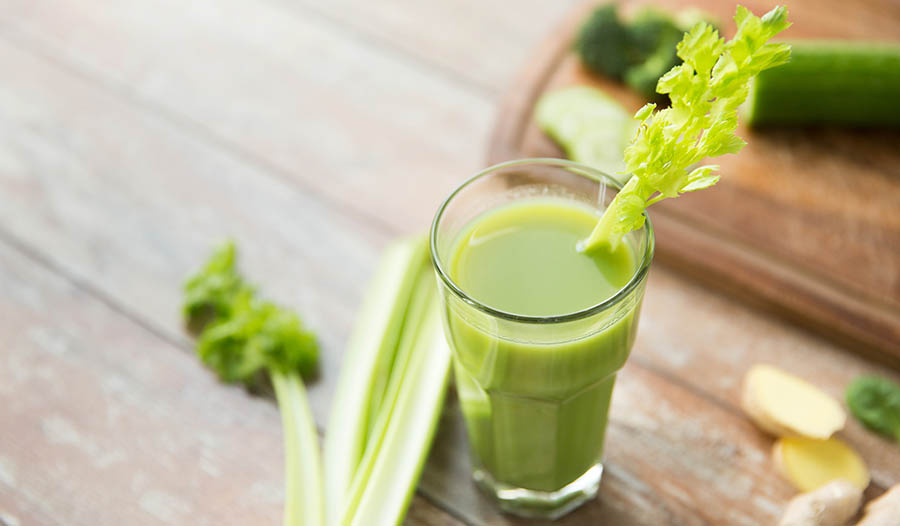A Natural Approach to Banish Bloating
DISCLAIMER:This blog does not intend to provide diagnosis...

It happens to the best of us: we squeeze into our skinny jeans only to find that buttoning them is far too uncomfortable even though they fit just fine yesterday. Most of the time, unpleasant belly bloat is to blame. A bloated gut is no fun, especially when it sneaks up on you before an important event. Not only is it uncomfortable, but it can add on the appearance of pounds even when you’ve been seemingly meticulous about your diet and exercise regimen.
There is a myriad of factors that can lead to bloating, from the foods we eat to the amount of stress we’re dealing with in our day-to-day life. If you’re suffering from unexplained bloating, my first recommendation is always to keep a food journal. This way, you can try to weed out any food intolerances that you may be experiencing unknowingly.
Next, my recommendation is to eliminate bloat-inducing foods and amp up the volume on bloat-reducing foods in your daily diet. Here are some of the most common recommendations I give my patients.
Chew on Celery
You may have heard that old wives’ tale that eating celery can help you burn calories. While it’s not necessarily true (celery is super low-calorie anyways), celery can help you get rid of stomach bloat thanks to the digestion-boosting minerals it contains. The high percentage of water and electrolytes found in celery help prevent dehydration while simultaneously acting as a diuretic and reducing the amount of water we store and hold in our body. It’s also packed with tons of other nutrients, including flavonoids, potassium, vitamin K and vitamin C, which are all great minerals for recovering after a bloat flare-up. Not a big fan of the taste of raw celery? Try celery seed supplements that can give you your daily dose in just two capsules.
Quit Sugar-free Gum
While you definitely want to limit your sugar intake to prevent excess pounds, keep inflammation at bay and your immune system in check, “sugar-free” is not necessarily the answer. Most things, especially sweet things, that are labeled “sugar-free” contain a slew of chemicals (namely sorbitol, maltitol and xylitol) that directly lead to bloating. In fact, you might notice just a few hours after eating a sugar-free product that your stomach starts expanding and is sensitive to the touch. If you’re going to sweeten your foods, it’s best to use something natural, like stevia.
Sip Lemon Tea
Lemon works simultaneously as a natural detoxifier and a cleansing agent. What does this mean exactly? Essentially, it helps eliminate unwanted bloat and toxins from the body. If you’re a fan of tea, I always recommend a lemon-ginger tea, especially around this time of year, since both ingredients can help boost your immune system and keep allergies at bay. Or, if you’re not a big tea fan, simply sip on hot lemon water in the morning to get your digestive system revved up for the day.
Limit Your Intake of Cruciferous Veggies
While studies have linked a diet rich in vegetable and fruit consumption with increased weight loss, it’s important to pick and choose which ones and just how much you’re eating. Broccoli, cauliflower and brussels sprouts, for example, are nutritional powerhouses but are also direct culprits of bloating. Luckily, there are plenty of non-cruciferous vegetables that you can fill your plate with including beet greens, chicory, cilantro, parsley and dandelion. Dandelion, in particular, is highly nutritious, aiding in everything from cholesterol levels and blood sugar to weight loss and a healthy liver. Try a dandelion tea to get the benefits in a delicious way.
References:
- https://www.ncbi.nlm.nih.gov/pmc/articles/PMC3488810/

 By Dr. Taz Bhatia, M.D.
By Dr. Taz Bhatia, M.D.


